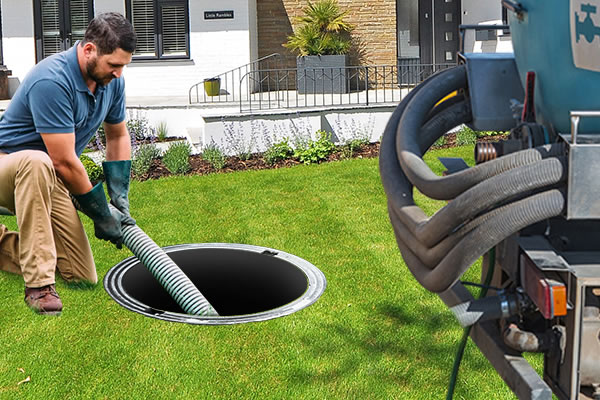
21
A healthy septic system relies on a delicate balance of good bacteria to break down waste efficiently. These bacteria play a crucial role in decomposing solid waste, allowing your septic system to function smoothly. However, various factors can disrupt this balance, leading to system failures and costly repairs. In this article, we'll explore how to increase good bacteria in your septic tank and maintain a healthy system.
Working with a professional septic company is crucial for maintaining a healthy septic system. They can provide services such as:
Maintaining a healthy population of good bacteria in your septic tank is essential for its efficient operation and longevity. Collaborating with a professional septic company for regular maintenance, repair, and septic tank cleaning will ensure your system remains in optimal condition. A well-maintained septic tank not only saves you from costly repairs but also contributes to a healthier environment.

22
Can Bacteria Additives Eliminate the Need for Pumping? If you own a home with a septic system, you’ve probably seen…
Read more
12
A single slow drain in your home can feel like a minor inconvenience. Maybe the sink takes a little longer…
Read more
05
Are Slow Drains a Septic Issue or Just a Clog? Slow drains are one of those household problems that start…
Read more
02
What Septic Service Techs See That Homeowners Miss Most homeowners only think about their septic system when something goes wrong.…
Read more
21
Simple Habits That Protect Your Septic System A well-functioning septic system does its job quietly, but the moment something goes…
Read more
14
Pump Now or Pay Later: The Real Cost of Skipping Maintenance A properly functioning septic system is easy to forget…
Read more
11
Why Your Septic System Always Acts Up at the Worst Time Homeowners often feel that septic problems strike at the…
Read more
04
Early Warning Signs Your Septic Tank Needs Pumping For homeowners who rely on a septic system, routine maintenance is not…
Read more
29
Why Does My Septic System Smell Fine One Day and Terrible the Next? If you own a home with a…
Read more
19
Is Your Septic System Overdue? Simple Home Checks You Can Do Today For many homeowners, the septic system is a…
Read more